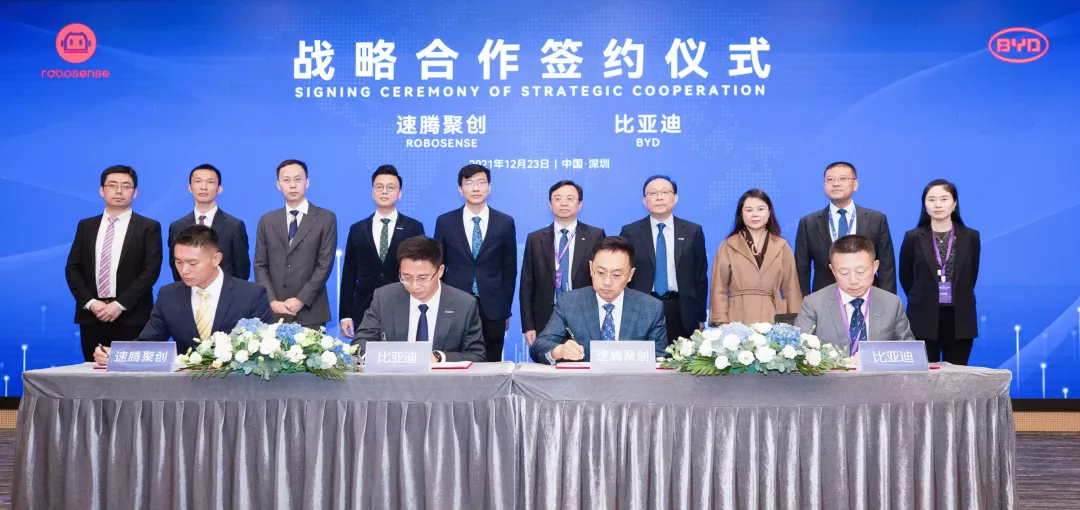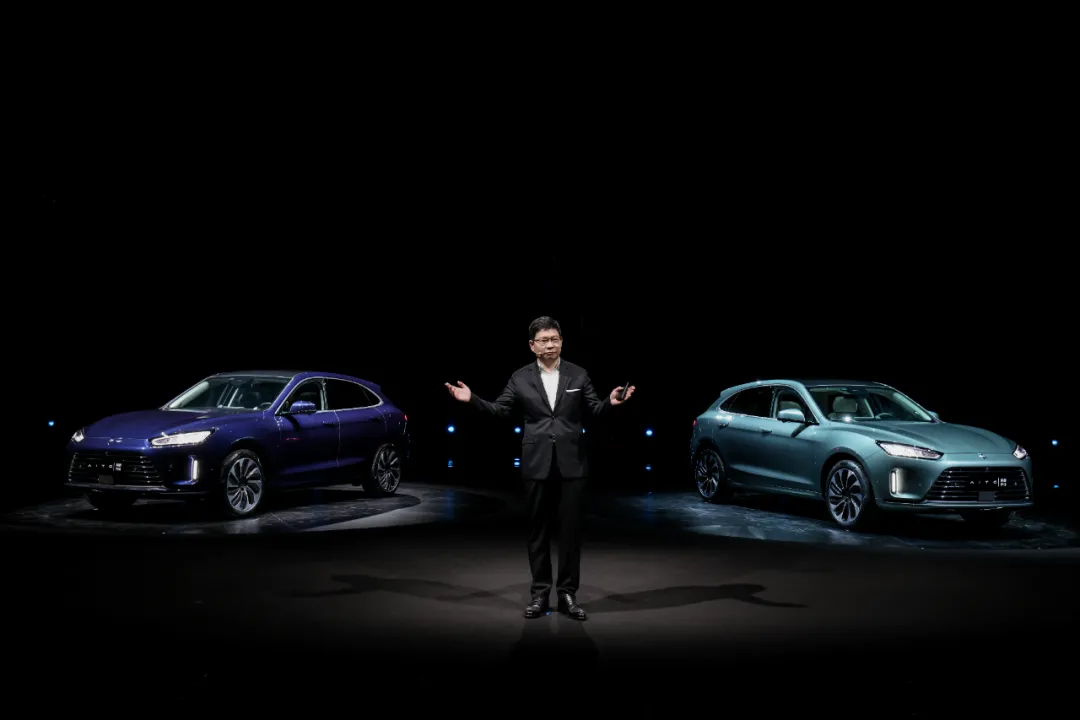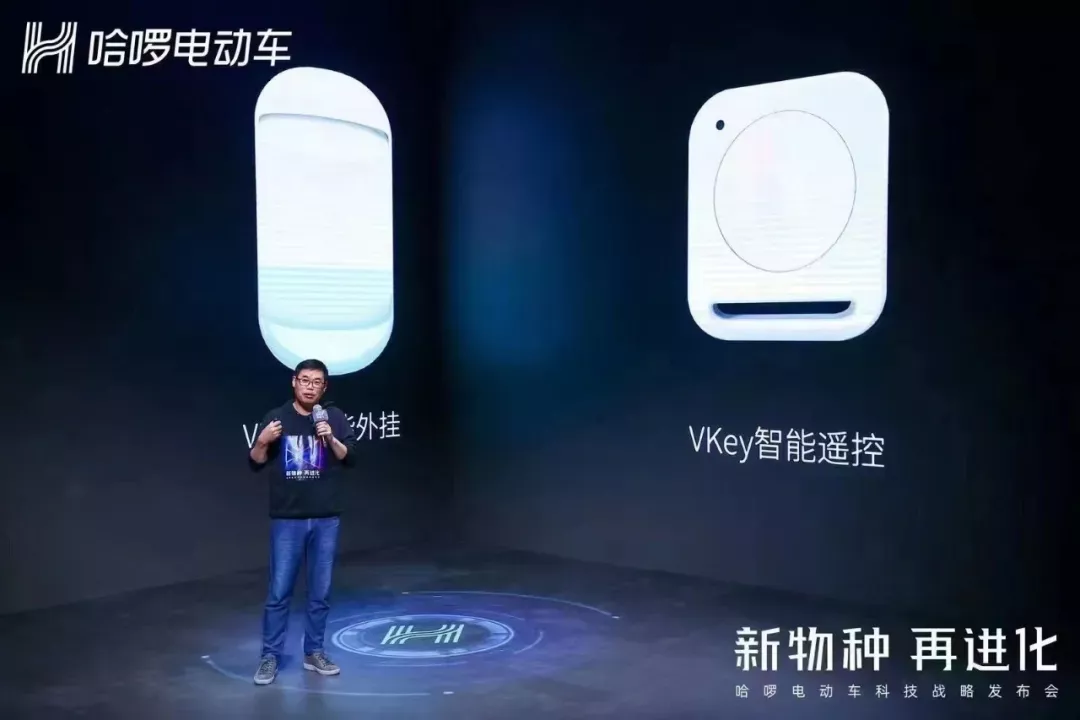CX100 Auto Club media under CX100 Auto Club, focus on the evolution of the automotive industry chain
Author: Zhou Changxian
Last week, except for Li Xiang’s response to Volkswagen China’s CEO Feng Sihan when releasing the sales data of Li Xiang’s Ideal ONE, almost all important events in the industry happened in Guangzhou and Shenzhen, and they were all related to the capital market.
On December 21, Guangzhou Automobile Industry Group (GAC Group), Wenyuan Zhixing, and Ruqi Travel held a strategic cooperation and investment signing ceremony in Guangzhou, announcing that they had reached a strategic cooperation agreement. GAC Group strategically invested in Wenyuan Zhixing, and Wenyuan Zhixing strategically invested in Ruqi Travel. The three parties will carry out in-depth cooperation based on their respective advantages, jointly promote the design, research and development, mass production and commercial operation of Robotaxi (autonomous driving taxis) pre-installed vehicles.
Perhaps you are not clear about the relationship among the three companies, let me explain briefly.
Ruqi Travel is a mobile travel brand under GAC Group. It is jointly invested and developed by GAC Group, Tencent, and others. According to the official statement, Ruqi Travel will connect the automotive industry chain with the Internet industry, build an intelligent networked application ecology, establish a “technology axis” with autonomous driving technology as the core and an “ecology axis” with travel service as the core, and promote the “dual-axis drive” strategic layout, eventually growing into China’s leading MaaS (Mobility as a Service) platform.
Wenyuan Zhixing (WeRide) is an L4 level autonomous driving technology company that focuses on the iron triangle strategic cooperation with automakers and platform companies, forming three major product matrices of autonomous driving taxis (Robotaxi), mini Robobus, and urban cargo vans (Robovan), providing multi-scenario services from online ride-hailing, on-demand buses to urban freight transportation, and exploring the commercialization of autonomous driving.
In fact, even before receiving investment from GAC Group, Wenyuan Zhixing had already cooperated with GAC Group for four years. This strategic investment by GAC Group in Wenyuan Zhixing and Wenyuan Zhixing’s strategic investment in Ruqi Travel is like adding fuel to the fire, making the iron triangle even more solid.
Therefore, the three parties can jointly promote the research and development and landing of high-level autonomous driving vehicles without any obstruction. For reference, please see the cooperation between SAIC Group, Xiangdao Travel, and Momenta in “Robotaxi Jianghu: a Battle of System Strength”.
Next, let’s turn our attention to Shenzhen.
On December 23, the 2021 CEO Annual Meeting of BYD’s invested enterprises was held in Shenzhen with the theme of “Focusing on Innovation, Building an Ecosystem, and Leading the Future.” BYD invited more than 20 companies to showcase their technological product innovation achievements, including the intelligent laser radar system technology company RoboSense (Speedtech).At the annual meeting, BYD Group officially announced the strategic investment agreement and strategic cooperation framework agreement with HoloMatic Technology, and the two sides will further integrate into the “friend circle” of the intelligent new energy vehicle industry ecosystem to build a solid foundation for deep industrial synergy.

Nowadays, intelligent new energy vehicles have become the smart terminals with the largest value, and because of the active three-dimensional imaging, the solid-state lidar can obtain centimeter-level accurate environmental perception information, and has become an indispensable core component of intelligent driving systems.
HoloMatic Technology is currently the only enterprise in the world to achieve mass production and delivery of the second-generation intelligent solid-state lidar for vehicles, and a variety of models under enterprises such as BYD, GAC Aion, NIO, Xpeng, Lotus, WeRide, Zhidou, etc., have chosen HoloMatic’s intelligent solid-state lidar for mass production of front-loaded vehicles.
BYD believes that the deep cooperation with HoloMatic is an important strategic node for BYD to focus on intelligence and comprehensively layout the intelligent automobile industry chain. It is a development of the industry with a forward-looking strategic vision.
This operation of BYD is easy to understand in the primary market, but the capital story on the next day is a bit complicated.
Speaking of which, let’s first talk about an episode that happened on the evening of that day.
That evening, at Huawei’s winter new product launch conference, Yu Chengdong, executive director of Huawei, CEO of the Consumer BG and CEO of the Intelligent Car Solution BU, released the first model of the brand new high-end brand AITO – Question World M5.
When praising the HUAWEI DriveONE pure electric drive and range extender platform equipped on Question World M5, Yu Chengdong suddenly went off-topic and started to spray the three-cylinder engine. “The three-cylinder engine is asymmetric and has a large vibration. It should be at least four cylinders.” He was almost reporting the identity of the LI Xiang. Knowing LI Xiang’s personality, he will definitely get back at him, but we don’t know when.

Unfortunately, this new product launch conference brought a gentle blow to HoloMatic, Huawei’s close partner, and its parent company Xiaokang shares fell for two consecutive days.
It’s really a sad story. Let’s go back to BYD.
On the evening of December 24, BYD announced that its holding subsidiary BYD Automotive Industry and Daimler proposed to increase their capital in TESLA through currency in accordance with their respective shareholding ratios of RMB 1 billion each. After the capital increase by both parties’ shareholders, BYD Automotive Industry and Daimler will continue to hold 50% of TESLA’s shares respectively.On the same day, Daimler announced that its subsidiary, Daimler Greater China Ltd. (DGRC), had signed an agreement with its Chinese partner, BYD, to adjust the equity transfer agreement of their joint venture, Denza. Upon completion of the equity transfer, Daimler and BYD will hold 10% and 90% of the shares in Denza, respectively. The transaction is subject to regulatory approval and is expected to be completed in mid-2022. BYD also released an announcement regarding the matter.
It might seem like a mystery, but it can be easily explained by following two steps, much like how to put an elephant in the fridge. Firstly, both BYD and Daimler will invest 1 billion RMB to increase the capital of Denza. Secondly, half a year later, the equity will be transferred, and BYD will have the “custody right” of Denza.
In other words, it’s a peaceful split-up. Don’t say anything if you can’t say anything nice.
Last week, I attended a two-wheeled electric vehicle launch event, which was related to the current hot money market player, Ningde Times.
Unlike the automobile industry that has already entered the era of intelligent electric vehicles, two-wheeled electric vehicles are still not very intelligent. Therefore, Haojue Holdings held an electric two-wheeled vehicle launch event called “New Species Re-Evolution.”
It is worth mentioning that this is Haojue’s another investment after announcing its entry into the two-wheeled electric vehicle market at the beginning of the year.
At the launch event, Haojue Holdings introduced four two-wheeled electric vehicle products, among which the smart flagship electric vehicle ME70 is equipped with a fast-charging OBC for passenger cars, a 72V-44Ah lithium battery for passenger cars + BMS.
The battery used in the Haojue ME70 is produced by Ningde Times, capable of traveling more than 200 kilometers on a single charge, with a lifespan of more than 2,000 cycles and an expected service life of more than 10 years.
In fact, Haojue Holdings has a close relationship with Ningde Times. The two companies not only have business cooperation, but also have established a joint venture, and Ant Group is also a shareholder.
Few people may know this, but like intelligent electric vehicles, two-wheeled electric vehicles also have automotive systems.
According to the “2021 White Paper on the Intelligentization of China’s Two-Wheeled Electric Vehicles” published by iResearch, the user group of two-wheeled electric vehicles is getting younger, with more than 70% of users hoping to have intelligent anti-theft functions such as smart locks and vehicle tracking, and more than 60% of users preferring vehicle condition detection, including lock status and remaining battery life, among other functions, in their vehicle APPs.
Hailing Electric Bike has released version 2.0 of the VVSmart ultra-connected vehicle system, which adds features such as keyless operation, quick and seamless unlock, startup self-checking of tire pressure, battery, motor, and controller, and reversing/pushing assistance system.
“We hope to enter the top echelon of the industry in three years and become the industry’s leading smart electric vehicle company in five years,” said Li Kaizhu, CEO of Hailing.
He hopes that Hailing can replicate the changes taking place in the four-wheeled electric vehicle market in the two-wheeled electric vehicle field. By upgrading traditional two-wheeled electric vehicles into intelligent vehicles through smart systems and hardware and using the industry’s transformation as a gearshift, Hailing can achieve overtaking on curves.
This article is a translation by ChatGPT of a Chinese report from 42HOW. If you have any questions about it, please email bd@42how.com.